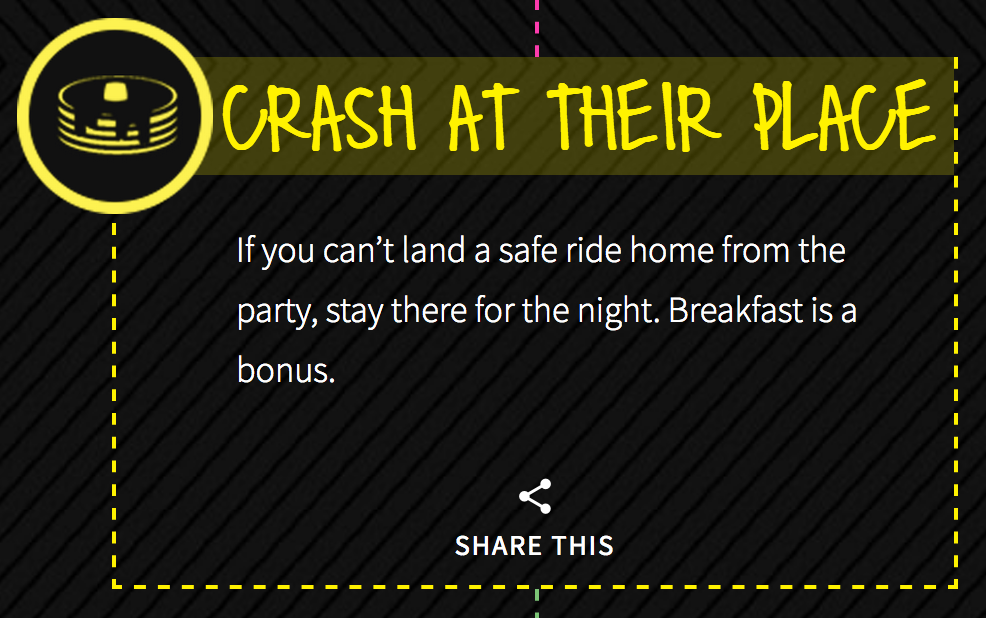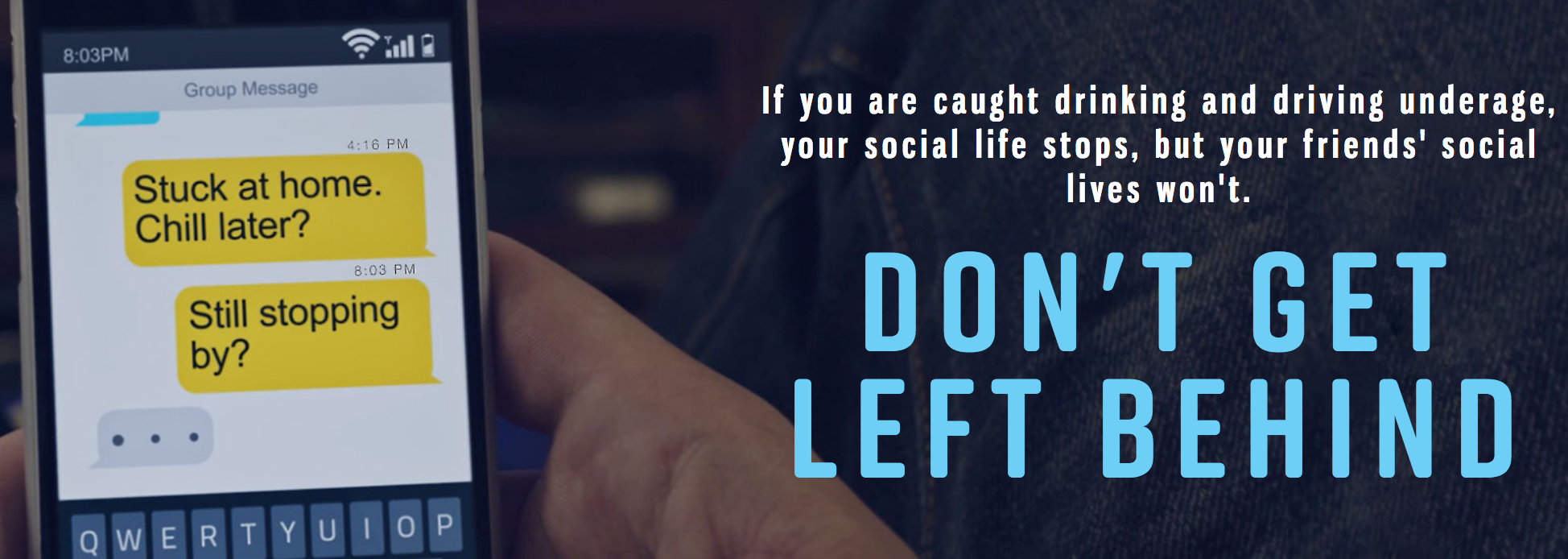In the Bay Area, and probably all around California, I have been seen at bus stops and on buses a very disturbing ad. What is disturbing about this advertisement, is that whoever made it failed to understand adolescent psychology. The ad says:
Underage drinking and driving: the ultimate party foul

So what’s wrong with this statement? The key word is “underage.” What this implies, is that drinking and driving if you are 21 or older, is not “the ultimate party foul, but it’s something else.” And that something else, can only be less than a big deal compared to under-aged drinking and driving. So, it’s simultaneously telling people over 21 that drinking and driving is much much worse if you are under 21, and it’s also telling people who are under 21 that it’s not as bad if you’re over 21 and drink and drive. Whichever end of the threshold you’re on, the ad challenges you to not think of drinking and driving as such as that bad of a thing.
As we know from research on children and advertising, all you have to do to make something cool, is to say “only adults can do it.” This institutes the no-kids-allowed forbidden fruit policy that precisely draws kids to do whatever they’re not supposed to do. The tobacco industry and the alcohol industry have made use of this knowledge to sell their products to underage youth for decades. So it’s baffling that the American Ad Council, which posts these public service announcements, would create a PSA like this, which completely undermines the very position one would think they’re trying to take (i.e., that nobody, especially young people, should drink and drive). What this amounts to, is simply that they need child psychologists and cultural semioticians to vet all of their Ad work. I volunteer for that position. Because as it stands, they’re messaging is creating the very opposite effect which they intend.
As Freudenberg writes, “Some industry-sponsored ‘Drink Responsibly’ campaigns, for example, use ‘strategic ambiguity’ to create messages that mean one thing to young people (e.g., ‘don’t drink too much’) and another to their parents (‘don’t drink if you’re under 21’). By telling each group what they want to hear, these advertisements offer alcohol companies positive publicity without jeopardizing market share or the recruitment of new customers” (p. 33). What is uncanny, is that Freudenberg is writing about the alcohol industry’s own fake corporate social responsibility campaigns, rather than the the American Ad Council and the National Highway Traffic Safety Association.
(Screenshot from the webpage full of tepid underage memes that have a lot to do with minimizing the actual potential costs of driving drunk, let alone the long-term and short-term health effects and vulnerability from excessive alcohol use)
Just as bad, the rape-prone advice “crash at their place” could cause these agencies a lawsuit if they’re not careful. It turns out that the website is no better than their ill-conceived tips. 
When I lived in Germany, there were lots of ads on the streets against teen rape and date rape, especially alcohol fueled. Where are the ads broaching this important subject in the US? Do we just pretend it doesn’t happen? How irresponsible is that?
The Party Foul ad is the ultimate PSA fail.
